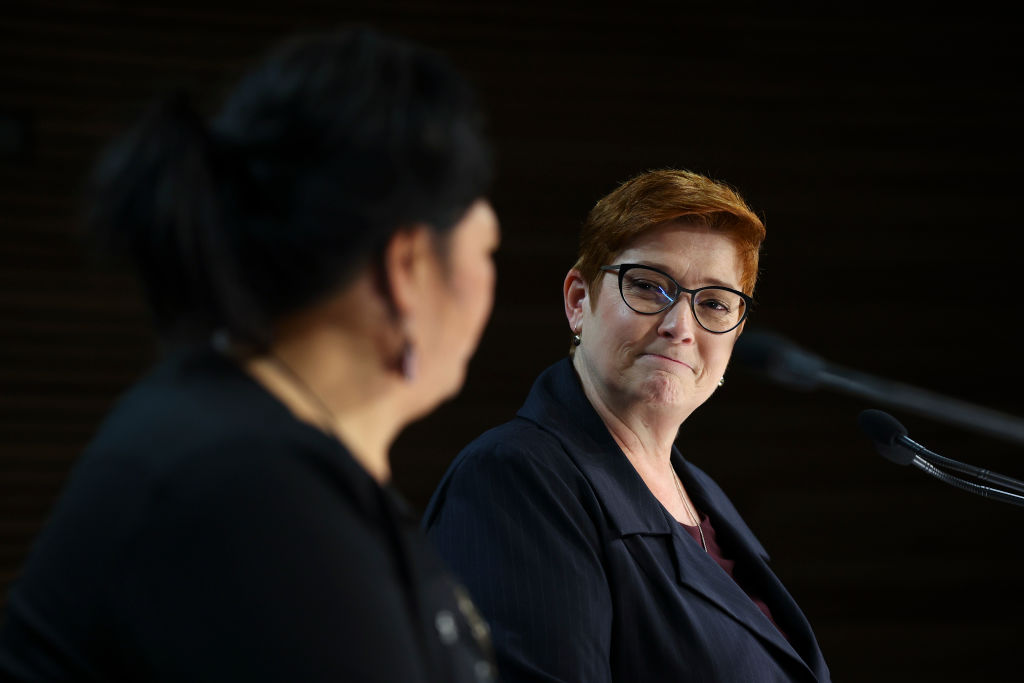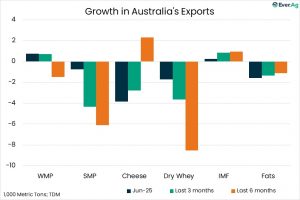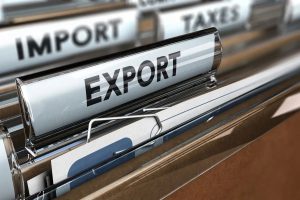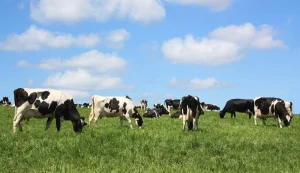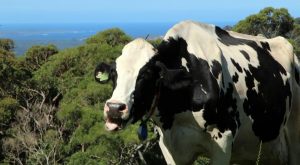
First, we are going to be on this rollercoaster ride for years. National positions are hardening. Neither Beijing nor Canberra will back down and the prospects for ‘negotiation’ are zero given China’s ‘wolf warrior’ mania.
Second, Prime Minister Scott Morrison and his senior ministers look increasingly confident in their stance to seek ‘a balance in favour of freedom’. The language used about relations with China is careful but is becoming clearer and more definitive. There is something to be said for knowing when your back is hard up against a strategic wall.
Third, the Chinese Communist Party’s rhetoric suggests that a hint of panic is seeping in. Statements from the Chinese embassy in Canberra and from the foreign ministry in Beijing are as shrill as they are counterproductive, implicitly threatening those who engage in ‘the despicable tactic of smearing China on the Australian side’.
Beijing’s usual Australian support base has largely gone to ground and public opinion has massively swung against the People’s Republic.
A fourth lesson is that, for Australia, our ability to draw on strong alliances and deep friendships with like-minded democracies is the reason that we will prevail against Beijing. The challenge is to keep these relationships strong. New Zealand aside, there’s a positive international agenda to pursue and a growing interest in Canberra to shape up to this opportunity.
Foreign Minister Marise Payne’s decision to cancel Victoria’s framework agreement ‘jointly promoting the framework of the Silk Road Economic Belt and the 21st Century Maritime Silk Road’ and memorandum of understanding under China’s Belt and Road Initiative ended Premier Daniel Andrews’s embarrassing venture into foreign policy.
Beijing’s desire to get Australian state and territory governments to ‘sign up’ to the BRI was designed to undermine Canberra. The federal government and opposition took the view that Australia shouldn’t provide a blank-cheque endorsement for China’s strategic plan to dominate global transport infrastructure from Europe to the Pacific Ocean.
Between 2015 and 2018, 139 countries signed Belt and Road agreements with China; this was a major political effort, promoted in the developing world with soft loans, to buy international political endorsement for a key Xi Jinping policy initiative.
The Council on Foreign Relations, a respected US think tank, judges that ‘the push to get countries to join [the] BRI is likely motivated less by a desire to build infrastructure and more by a goal of increasing China’s narrative power … [and promoting the view] that Beijing is an economic power on par with the United States.’
In effect, Andrews fell hook, line and sinker into a PRC political trap. Imagine an Australian government trying to get a Chinese province to sign an agreement endorsing Morrison’s Pacific step-up. Beijing would, of course, veto such a deal on the grounds that China’s provinces have no foreign-policy business endorsing an Australian strategic objective.
While the Chinese embassy decried the cancellation of the Victorian agreements as ‘another unreasonable and provocative move taken by the Australian side against China’, the real provocation here was the naked attempt to turn a state government against the Commonwealth, abetted with the usual coterie of Australian influencers and businesspeople intent on making money.
Comments from the Chinese embassy have become increasingly incomprehensible. Wang Xining, the mission’s deputy, told the National Press Club last week: ‘China is not a cow. I don’t think anybody should fancy the idea to milk China when she’s in her prime and plot to slaughter it in the end.’
Perhaps this is why Beijing refused last week to renew licences for Australian farmers to export hay to China. This latest effort in economic coercion, to ‘punish’ Australia for exercising its political sovereignty, is yet another example of the lack of strategic thinking in China’s actions.
Australia exports oaten hay to China’s rapidly growing dairy industry. This is widely regarded as a high-quality, palatable feedstock, preferable to alfalfa, straw or other cereal hays exported by other countries.
While the Chinese ban will inconvenience Australian farmers, it’s likely they will be able to find other markets for their oaten hay, just as barley farmers did a few months ago. In the meantime, Chinese dairy farmers lose access to the best available product for their cows.
Contrary to criticism from the opposition, government ministers are picking their words carefully and not reacting to the sillier comments from Beijing. Against the signs of an increasingly panicky CCP, Morrison’s senior ministers look and sound more assured.
Payne’s use of Australia’s Foreign Relations Act to cancel Victoria’s Belt and Road agreements was calm and sensible, as was Defence Minister Peter Dutton’s measured statement yesterday that ‘We’re not going to have our values compromised, we aren’t going to surrender our sovereignty.’
Payne foreshadowed that, while the ‘overwhelming majority’ of foreign agreements won’t be affected, it’s possible that some will be cancelled.
High on the government’s list for consideration must surely be the dozen or so secret agreements bringing Confucius Institutes on to Australian university campuses. The way these institutes function is surely anathema to what should be a central university value for fiercely independent research.
To sustain the funding flow from Confucius Institutes, universities run the risk that courses on Chinese history or international relations cannot discuss Taiwan, Tibet, Xinjiang, Hong Kong, the illegal annexation of the South China Sea, human rights and other topics discomfiting to Beijing. It’s way past time that the institutes were closed.
It’s also past time that the government took decisive steps to end the 99-year lease of the Port of Darwin to a Chinese company, Landbridge. Readers will recall the farcical circumstances in which the port was leased in 2015, literally at the same time as Australian foreign and defence ministers were meeting their US counterparts in Boston and agreeing to ‘pursue enhanced naval cooperation across all domains, including additional combined training and exercises’.
Whatever initial promises for economic development were made to the Northern Territory government by Landbridge, the reality is that not much is happening. Landbridge has suspended plans to build a luxury hotel near the port and advises that ‘If we don’t resume work by end of June 2021 Landbridge will not continue with the project.’
So much for a long-term perspective. Meantime, some creative thought applied to the future of the US Marine Corps presence in the Top End, and to Japan’s LNG export interests located there, could transform the port into a thriving military and export hub, involving ever-closer cooperation between three of the Indo-Pacific’s most consequential democracies.
Working with ASPI last week, the opinion polling company TrueNorth Strategy tested public opinion on the Port of Darwin. The nationwide survey found that 85% of Australians agreed that the port should be returned to Australian management due to increased tensions with China.
The same survey found that 89% of people polled believed that Australia and its allies should commit to defending an independent democratic state in our region if it were threatened or attacked by the PRC, and 80% supported recent government announcements to expand defence manufacturing to build missiles for our defence force.
When it comes to defence and security, governments need to do what is right for Australia’s interests, not necessarily what is popular, but it’s clear that public opinion has been ahead of government on the big strategic issues for some time.
A decision to end the Port of Darwin lease will be well received domestically, by our key allies and in the region, which looks to Australia to play a strengthening role in security during troubled times.
And so to New Zealand, described by Rudyard Kipling on his visit in 1891 as ‘last, loneliest, loveliest, exquisite, apart’. Sadly, the word that best describes New Zealand foreign policy under Jacinda Ardern is ‘apart’.
Wellington wants the defence and intelligence benefits of being part of the Five Eyes grouping without ever having to rock what Foreign Minister Nanaia Mahuta described in a speech last week as a ‘diplomatic relationship with China [that] has been steadfast for nearly 50 years’.
Mahuta’s speech was piled high with platitudes about how important it was for New Zealand ‘to stay true to ourselves’, but nowhere does that translate into clear expressions of disapproval for Beijing’s bad behaviour, or words of support for New Zealand’s democratic allies. Here’s one example of this evasive moralism: ‘Matters such as human rights should be approached in a consistent, country agnostic manner. We will not ignore the severity and impact of any particular country’s actions if they conflict with our longstanding and formal commitment to universal human rights.’
Does ‘country agnostic’ mean Wellington disapproves of the mass detention centres imprisoning hundreds of thousands of Uyghurs in Xinjiang, but can’t mention China by name?
New Zealand remains an important ally of Australia, one in which we have underinvested over the decades, failing to sustain a measure of common thinking on key strategic issues. We should hope that, during her visit last week, Payne was able to convey the thought to Mahuta and Ardern that Wellington should keep an eye on how it is travelling with Canberra’s policymakers as much as it worries about Beijing.
If New Zealand truly no longer wants to pay its Five Eyes dues, Australia has a vastly more significant and capable partner in Japan. Big strategic thinking would say that it’s time to bring Japan into the Five Eyes fold.
AUTHOR
Peter Jennings is the executive director of ASPI and a former deputy secretary for strategy in the Department of Defence. A version of this article was published in The Australian.
